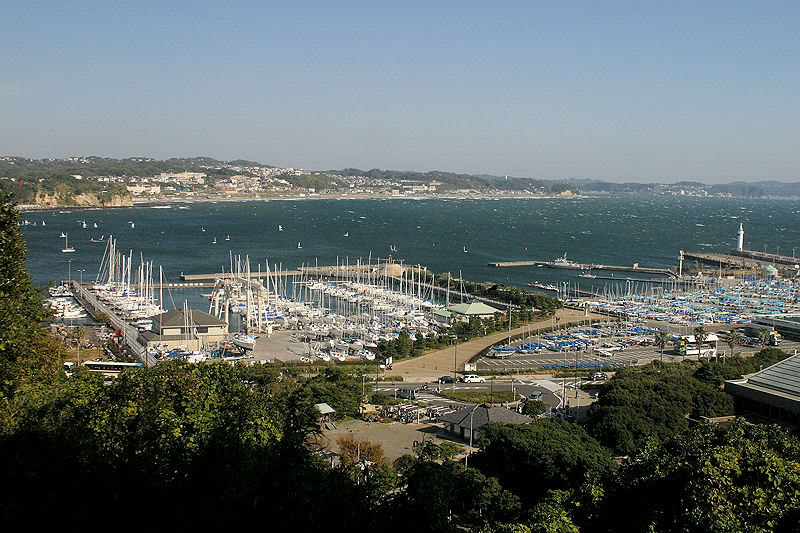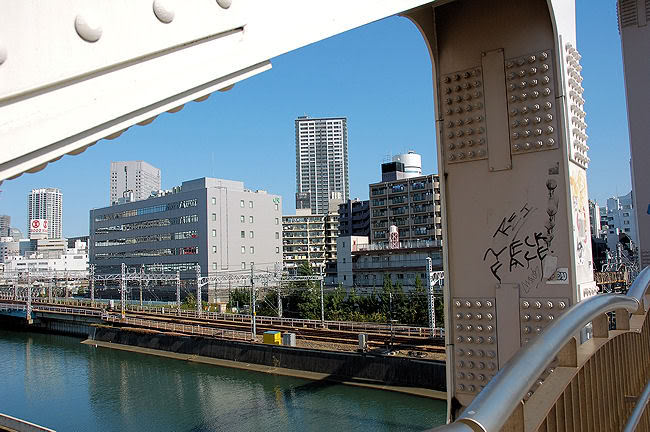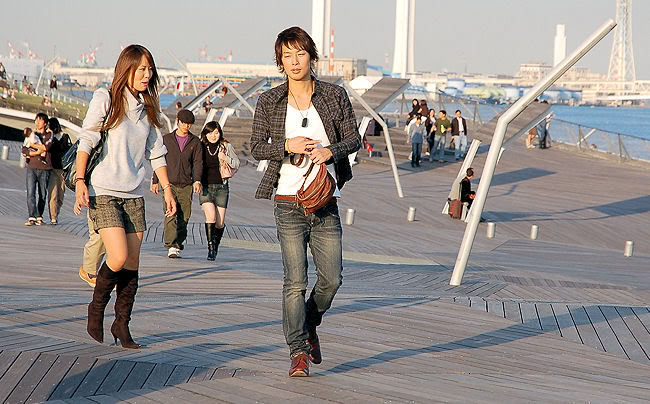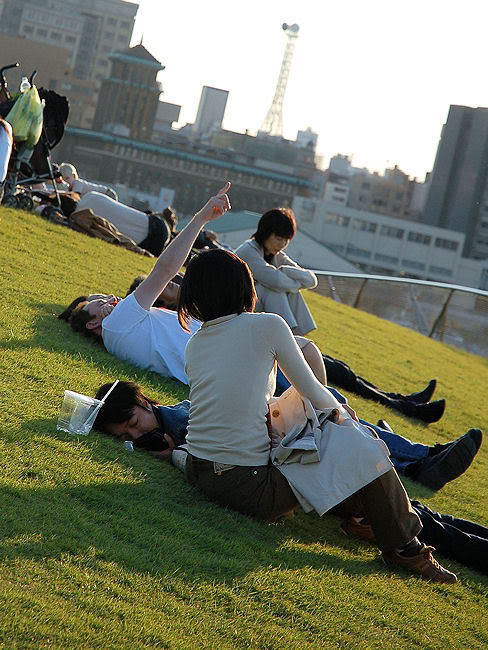Japan
I will also contribute to the cause, especially since someone asked to share information.
Soon I have been living and working in Japan for 4 years. To get here a foreigner on the one hand is quite easy, but on the other hand it is not. How so? The fact is that there are no immigration programs in this country, naturalization is possible (practically) only through marriage, but there is a huge shortage of engineers in the country. That is, sellers, lawyers, doctors, builders, taxi drivers are there, and there are few engineers. I will tell about the reasons below. So, Japan imports a great number of Indians, Chinese, Koreans, Filipinos, Americans, Thais, etc. every year. for work in technical areas. However, the Russian engineer (as always) is difficult to squeeze through. If only because they need a visa, a guarantor, running around with papers (in the last year or two the situation has become a bit better). Therefore, if you really want to go to Japan, you will have to stock up with some unique (well, or at least rare) knowledge - microcontrollers, programming for RTOS, GIS, tricky databases, distributed computing, etc. And webmasters are full in China :)
As a rule, the employer draws up a working (engineering, which is very honorable) visa, which can be extended as needed. First, a visa is given for a year, then for three.
Another possibility is to enroll in a Japanese university for a technical specialty. After training, they should be blessed at the enterprise (which counts for work experience), get connections, and after graduation find a job (even if it is even at their department in the university). By the way, last year I invited students for an internship, but no one from Russia decided something, and we took a student from France (as they say, watch for advertising, next year, we may be looking for students again).
Another way is science. The Japanese are willing to take foreign scientists in their research projects. Unfortunately, I don’t have any specific information here.
Japan is not as small as it seems the first time. Firstly, it is strongly extended from north to south, so if the climate is similar to the Far East of Russia in Hokkaido, then subtropics reign in Okinawa. The highlands look like Switzerland or Altai, the seaside (most populated) areas look like Europe. The climate is mild, humid, 5 seasons are clearly expressed - winter, spring, rainy season, summer, autumn.

Earthquakes are frequent, but you quickly get used to them. In the autumn of September-October, there is a series of typhoons, but apart from leaves scattered everywhere and the cancellation of trains for several hours in the worst case, they do not pose any special problems.
Japan is one of the cleanest countries I have ever seen. In Japanese, “pure” and “beautiful” are one and the same word.
Big Tokyo is a heavily populated place, but already in an hour by train from its center you can live quite comfortably.
')
A foreigner in Japan is difficult. But interesting. The most difficult in Japan (no, not language) - Japanese :)
It is very difficult to live with them, but even harder to work. The fact is that the Japanese are out of school from thinking and analyzing. That is, a child from elementary school is only trained, but not taught - they are not taught to search and process information, look for new ways to solve problems, and generally act outside the box. Hence, the aforementioned shortage of engineers - the Japanese suppressed precisely those skills that are necessary for engineering specialties.

In addition, society as a whole is based on very different principles. Any predominantly male team is a baboon of flocks with alpha males and oppressed members. Hazing and servility flourish. This is not only not suppressed, but also encouraged from school. Therefore, first of all, the Japanese are interested in the age and social status of the interlocutor (older and married are put higher) - this makes it possible to embed the interlocutor in their social system and develop an appropriate style of behavior with a particular person. Good news - white Europeans are not people a priori, so you can not worry about their status at all. Women are human to a lesser extent, Asian Asians are not human at all.
The Japanese, who grew up or studied abroad, cannot live in Japan at all - they disgust the boss of the priest, and you cannot hire a foreigner (as a rule, they either leave at all, or seek work in foreign companies).
In some of the negative manifestations, Japan is similar to modern Russia - the same “its own way”, “getting up from its knees”, contempt for former colonies, food industry and “domestic producer”.
The attitude towards white Europeans as like cute little animals is interested, benevolent, but the thought of their human nature will never creep in on anyone :)
On the other hand, the Japanese are polite and nice people. It is very rare to encounter rudeness or aggressive behavior. There is practically no crime. The drivers are polite, always give way to pedestrians. Service is beyond praise. A visitor to a store or restaurant is a king and god. They say “o-kaku-sama” about any clients, where “sama” is the most respectful of all suffixes of the Japanese language (this is how they address the gods, the emperor and the client).

There are many foreigners in Tokyo and its surroundings, Osaka and some other big cities. These are mainly tourists or employees of foreign companies.
For unmarried / unmarried a very big chance to find a mate. Those Japanese and Japanese who are not afraid of foreigners are usually very nice and open people who are keenly interested in foreign culture and lifestyle. As a rule, they find white Europeans (especially with bright eyes) very attractive :)

The salary of an engineer, even the most minimal (about $ 2,500), is enough for a quite tolerable standard of living. The average salary ranges from 3500-5000 dollars. A good one is from 6000. If you are lucky to get a job in a financial institution (and they are going through hard times), you can count on a sum of one and a half times more.
Food prices are almost like in Moscow, but the quality is much better. For everything else (clothing, electronics) - much lower.

There are certain problems with the car - the former owner may even pay extra for the car itself, but to keep it expensive because of paid parking. Therefore, if you do not have a home where you can put it for free, it is better to travel by public transport. The whole country is literally riddled with railways, which, according to Russian concepts, are more like a subway. Trains run regularly, quickly and with a few transfers, you can get anywhere. There are more buses in big cities, but they are not so convenient.

Language is another problem. Nobody speaks English here. That is, the whole country teaches, but no one speaks (even if they understand a little, they don’t serve the species) - and how, suddenly you make a mistake! It's a shame! Somewhere where the signs are duplicated in English, but not as a rule.
Housing expensive and cramped. For a two-room apartment of 45 meters will have to pay about 700-1000 dollars per month, depending on the distance from Tokyo.
Mandatory medical insurance covers 70% of costs (including medications). If spending on medicine per month exceeds a certain amount, you can get some part back. The medicine is paid, almost in every district there is a large hospital and dozens of small specialized clinics.
In general, if you decided to go to Japan, go! This is a very interesting and beautiful country.
Yokoso! Welcome!
I will try to answer your questions in the comments.
How?
Soon I have been living and working in Japan for 4 years. To get here a foreigner on the one hand is quite easy, but on the other hand it is not. How so? The fact is that there are no immigration programs in this country, naturalization is possible (practically) only through marriage, but there is a huge shortage of engineers in the country. That is, sellers, lawyers, doctors, builders, taxi drivers are there, and there are few engineers. I will tell about the reasons below. So, Japan imports a great number of Indians, Chinese, Koreans, Filipinos, Americans, Thais, etc. every year. for work in technical areas. However, the Russian engineer (as always) is difficult to squeeze through. If only because they need a visa, a guarantor, running around with papers (in the last year or two the situation has become a bit better). Therefore, if you really want to go to Japan, you will have to stock up with some unique (well, or at least rare) knowledge - microcontrollers, programming for RTOS, GIS, tricky databases, distributed computing, etc. And webmasters are full in China :)
As a rule, the employer draws up a working (engineering, which is very honorable) visa, which can be extended as needed. First, a visa is given for a year, then for three.
Another possibility is to enroll in a Japanese university for a technical specialty. After training, they should be blessed at the enterprise (which counts for work experience), get connections, and after graduation find a job (even if it is even at their department in the university). By the way, last year I invited students for an internship, but no one from Russia decided something, and we took a student from France (as they say, watch for advertising, next year, we may be looking for students again).
Another way is science. The Japanese are willing to take foreign scientists in their research projects. Unfortunately, I don’t have any specific information here.
A country
Japan is not as small as it seems the first time. Firstly, it is strongly extended from north to south, so if the climate is similar to the Far East of Russia in Hokkaido, then subtropics reign in Okinawa. The highlands look like Switzerland or Altai, the seaside (most populated) areas look like Europe. The climate is mild, humid, 5 seasons are clearly expressed - winter, spring, rainy season, summer, autumn.

Earthquakes are frequent, but you quickly get used to them. In the autumn of September-October, there is a series of typhoons, but apart from leaves scattered everywhere and the cancellation of trains for several hours in the worst case, they do not pose any special problems.
Japan is one of the cleanest countries I have ever seen. In Japanese, “pure” and “beautiful” are one and the same word.
Big Tokyo is a heavily populated place, but already in an hour by train from its center you can live quite comfortably.
')
People
A foreigner in Japan is difficult. But interesting. The most difficult in Japan (no, not language) - Japanese :)
It is very difficult to live with them, but even harder to work. The fact is that the Japanese are out of school from thinking and analyzing. That is, a child from elementary school is only trained, but not taught - they are not taught to search and process information, look for new ways to solve problems, and generally act outside the box. Hence, the aforementioned shortage of engineers - the Japanese suppressed precisely those skills that are necessary for engineering specialties.

In addition, society as a whole is based on very different principles. Any predominantly male team is a baboon of flocks with alpha males and oppressed members. Hazing and servility flourish. This is not only not suppressed, but also encouraged from school. Therefore, first of all, the Japanese are interested in the age and social status of the interlocutor (older and married are put higher) - this makes it possible to embed the interlocutor in their social system and develop an appropriate style of behavior with a particular person. Good news - white Europeans are not people a priori, so you can not worry about their status at all. Women are human to a lesser extent, Asian Asians are not human at all.
The Japanese, who grew up or studied abroad, cannot live in Japan at all - they disgust the boss of the priest, and you cannot hire a foreigner (as a rule, they either leave at all, or seek work in foreign companies).
In some of the negative manifestations, Japan is similar to modern Russia - the same “its own way”, “getting up from its knees”, contempt for former colonies, food industry and “domestic producer”.
The attitude towards white Europeans as like cute little animals is interested, benevolent, but the thought of their human nature will never creep in on anyone :)
On the other hand, the Japanese are polite and nice people. It is very rare to encounter rudeness or aggressive behavior. There is practically no crime. The drivers are polite, always give way to pedestrians. Service is beyond praise. A visitor to a store or restaurant is a king and god. They say “o-kaku-sama” about any clients, where “sama” is the most respectful of all suffixes of the Japanese language (this is how they address the gods, the emperor and the client).

There are many foreigners in Tokyo and its surroundings, Osaka and some other big cities. These are mainly tourists or employees of foreign companies.
For unmarried / unmarried a very big chance to find a mate. Those Japanese and Japanese who are not afraid of foreigners are usually very nice and open people who are keenly interested in foreign culture and lifestyle. As a rule, they find white Europeans (especially with bright eyes) very attractive :)

A life
The salary of an engineer, even the most minimal (about $ 2,500), is enough for a quite tolerable standard of living. The average salary ranges from 3500-5000 dollars. A good one is from 6000. If you are lucky to get a job in a financial institution (and they are going through hard times), you can count on a sum of one and a half times more.
Food prices are almost like in Moscow, but the quality is much better. For everything else (clothing, electronics) - much lower.

There are certain problems with the car - the former owner may even pay extra for the car itself, but to keep it expensive because of paid parking. Therefore, if you do not have a home where you can put it for free, it is better to travel by public transport. The whole country is literally riddled with railways, which, according to Russian concepts, are more like a subway. Trains run regularly, quickly and with a few transfers, you can get anywhere. There are more buses in big cities, but they are not so convenient.

Language is another problem. Nobody speaks English here. That is, the whole country teaches, but no one speaks (even if they understand a little, they don’t serve the species) - and how, suddenly you make a mistake! It's a shame! Somewhere where the signs are duplicated in English, but not as a rule.
Housing expensive and cramped. For a two-room apartment of 45 meters will have to pay about 700-1000 dollars per month, depending on the distance from Tokyo.
Mandatory medical insurance covers 70% of costs (including medications). If spending on medicine per month exceeds a certain amount, you can get some part back. The medicine is paid, almost in every district there is a large hospital and dozens of small specialized clinics.
In general, if you decided to go to Japan, go! This is a very interesting and beautiful country.
Yokoso! Welcome!
I will try to answer your questions in the comments.
Source: https://habr.com/ru/post/59816/
All Articles